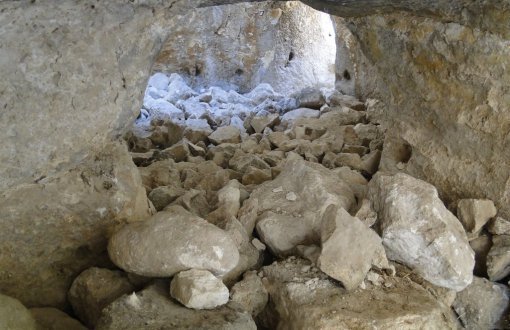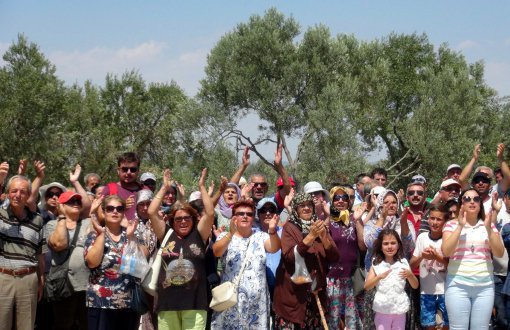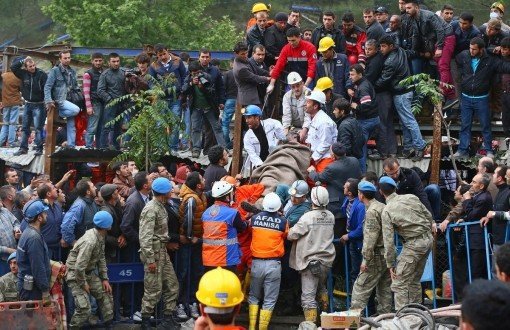They set up a whole new town under the burning sun. After 20 years, in the lands they were exiled, they build their houses with their own hands.
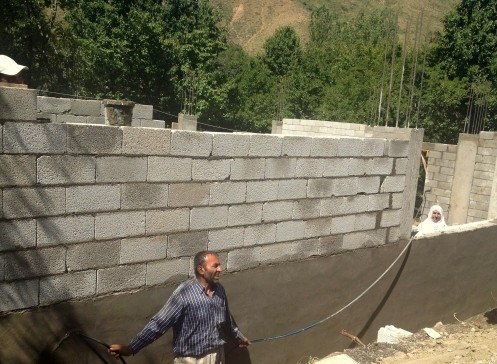
They are in a hurry. They want to bring it up until the eid in three months. Kılıç family is just one of the families replaced by [state] force to Istanbul in 1993. They are building a big house. There are 7 families in the progeny. We do not know yet how many of them will come back.
“First, we intend to finish building up the house we will live in,” they say. They worked at constructions and textile business in abroad. Having neither animals nor cultivated land in the village, they are going to start all over from scratch, like the whole Kavar basin.
We are in the poorest villages
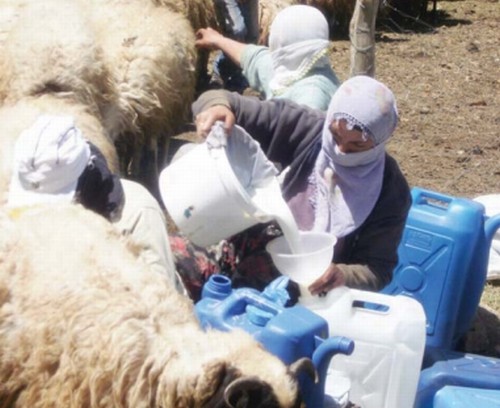
We are in the villages of Kavar basin in Bitlis’ Tatvan district - Turkey’s one of the poorest provinces. We came here by the invitation of Rural Development Initiative (Kırsal Kalkınma Girişimi).
Kavar means “rural” in Armenian. Kurds and Armenians had once been living together in the basin. After the 1915 genocide, only Kurds remained there.
Because of the political imposition of the government “be a ranger or move away” in 1990s, they chose the exile rather than being a ranger and the ones chose being rangers blocked the comeback for long years by invading the land of those who move out.
When they came back, the scene was terrible, the village was full with ruined houses, occupied fields and perished animals.
They started all over. First they built houses, then started cultivating and bought animals. The returners still could not meet the losses but they strive.
“Kavar Basin Rural Development Project” created by Hüsnü M. Özyeğin Foundation between the years 2008-2013 promoted this effort. The reconstruction is conducted on the basis of principles standing upon rights, gender equality and providing the continuation of natural sources. The first two years of the Project passed with convincing the bureaucrats.
Kavar Honey is famous in everywhere
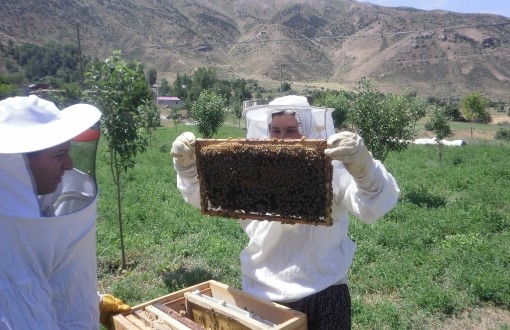
1,500 people living in six villages (Kolbaşı, Düzcealan, Yassıca, Tokaçlı, Dibekli, Bolalan) where the income per capita is 100 Turkish Liras [about 35 euros] and five hamlets benefited from the Project realized with difficulties.
The peasants learnt pruning trees and barns were regenerated. The paths of the village and sewages were repaired. The peasants planted walnuts, cherries, apples, haricots and green beans.
School for children
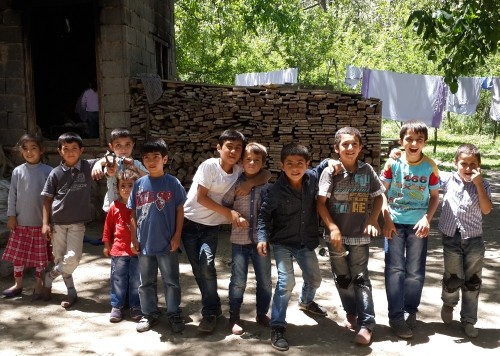
Besides, a milk collection center, wellness center and village councils were established. The schools closed down in 90s were mended, a secondary school was built for the students having to stay in boarding schools and service was provided. Children libraries and choirs were founded.
Beekeeping, green-housing, handcraft projects in which the income goes directly to women, to lessen the burden on them were made.
These improvements developed hope and unity among villagers in addition to increasing household income by %50. The foundation resigned from the basin but Kavar cooperative is carrying out all the business there.
Flowers decorating Tatvan streets
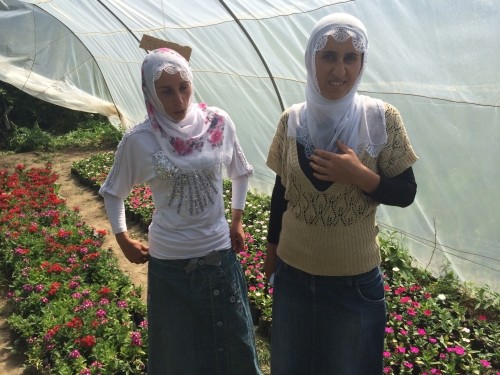
The milk production in the basin created an important market. Major milk companies started to sell this milk. At the most remarkable stop of the basin, people grow flowers in greenhouse. Plants are decorating Tatvan streets.
44 women occupied with apiculture produced 4.5 tones of honey. The reputation of honey exceeds the area, the prominent hotels of Turkey and holdings prefer Kavar honey.
Apiarist women are called as white butterflies now, with their white clothes once they were ashamed of wearing in the village square.
From textile business to apiculture
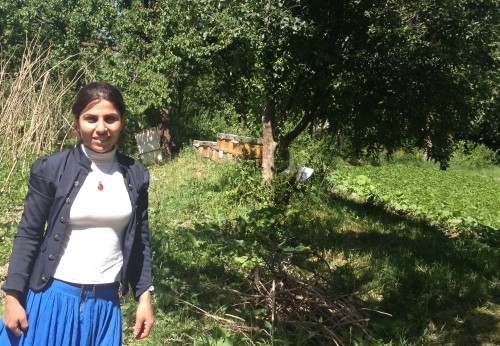
27-year-old Leyla Kocbaş, having returned Kolbaşı village five years ago, is one of them.
When the neighbor village where his grandfather lived burnt down 12 people migrated to Mersin first without packing their stuff up. As they could not live by there, they later moved to Istanbul.
Leyla went school just enough for learning Turkish and started working in textile business at 10 years old in their quarter, Bağcılar. She had never spoken her mother tongue outside of her home due to the scoldings like “do not intervene the second channel.”
She remembers those days saying “They were throwing spinnerets to our heads.” First his mother then his father losing his one eye with a punch of a soldier returned the village.
She said when she stepped on the house reminding her of the shots “I took a step back. The house in Istanbul were clean and neat. The country house was terrible.”
But after staying in the village for about two months, she decided to not turn back to Istanbul again.
Because the only beauty Istanbul presented her consisted of the Bosphorus that she had seen once in her life time. Except that, “ I only miss its lights,” says her, ‘But stars are also brilliant in the village’.”
She also learnt how to milk
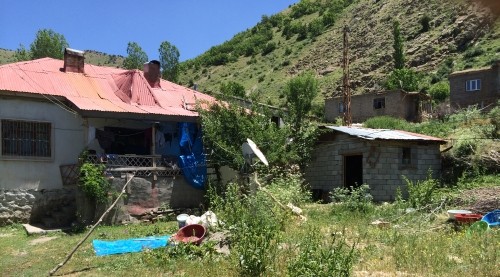
She immediately learnt milking and plowing. Starting to work in textile business at 10 years old in Istanbul, Leyla did not find those activities that hard.
She then started green-housing and apiculture. Her family was against it at first, they did not want to take on debt. Leyla resisted. She started the business with a debit costing 3 thousand 800 Turkish Liras to 10 hives. She paid her debt in two installments when she sold the delicious honey taking flavor from thousands of flowers.
Textile is left behind in Istanbul for Leyla but she sewed stage clothes for children with her ability she developed in the atelier. The music choir established by the village children took the stage with Kardeş Türküler.
“I would take my hives with me wherever I go after I marry,” says laughingly. Istanbul was left behind for her now. However, for her brothers whose children go to school, the village is left behind.
I would be there where the happiness is
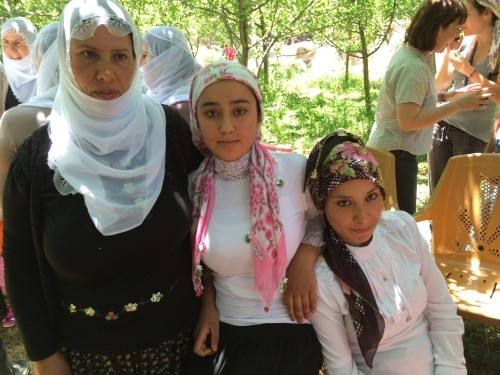
The biggest problem in Kavar is actually the return of the young. The villages not enough for satisfying the material and moral needs.
The State cannot even drain the water pouring into the lake from rivers, to the village with channels. They cannot harvest the dry fields. In the villages having no internet connection, phones are reachable in very few places.
Returning to the village with her husband, Süreyya Pirol could not see her two sons for two years. If there is a job opportunity in the village, they will immediately come back.
But there are people forgotten the village life or having get used to the city life and does not want to come back.
For instance, Nurgül, Nuriye, Aslı Ataman in Yassıca village are mother and daughters occupied with apiculture. They returned to the village seven years ago.
The mother is happy with producing her own honey leaving the days when she worked as a seasonal worker, behind. Whereas, Nurgül is dreaming of the city remained in her mind from her childhood. “I would live in the place where the happiness is,” Nuriye says. (NV/MEV/BM)
* Click here to read the article in Turkish.






